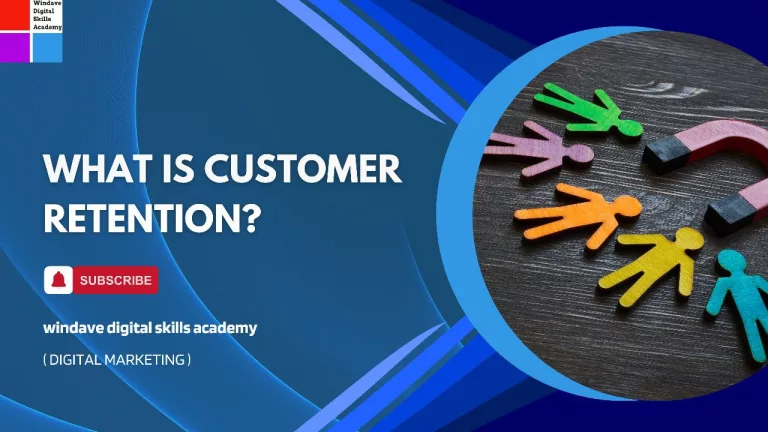What is Social Listening?
In today’s fast-paced digital world, businesses and individuals alike are constantly searching for ways to connect better with their audiences.
One of the most effective ways to understand your audience, track trends, and build stronger relationships is through social listening.
GROW A PROFITABLE ONLINE BUSINESS
Table of Contents
What Is Social Listening?
Social listening is the practice of tracking conversations, mentions, and trends across social media and online platforms to gain insights into what people are saying about your brand, industry, competitors, or a specific topic.
It’s like being a digital detective: listening to what’s being said, analyzing it, and then using that information to make informed decisions.
Think of social listening as tuning into a global conversation.
People are constantly sharing their opinions, experiences, and ideas online, and social listening helps you understand these conversations.
It’s not just about reading comments or checking hashtags; it’s about analyzing the meaning behind those interactions and figuring out how they relate to you or your business.
Why Is Social Listening Important?
Social listening is more than just a buzzword.
It’s a critical tool for anyone looking to build meaningful connections in the digital space.
Here’s why it matters:
1. Understand Your Audience
By monitoring what people are saying, you get valuable insights into their needs, preferences, and pain points.
For example, if you sell shoes, social listening can help you identify whether your customers are raving about your comfortable soles or struggling with sizing issues.
2. Improve Your Products and Services
When you listen to feedback, both positive and negative, you can make necessary changes to improve your offerings.
For instance, if customers frequently mention that your app is slow, you know where to focus your efforts.
3. Stay Ahead of Trends
Social media moves fast.
Social listening keeps you informed about trending topics in your industry, allowing you to capitalize on new opportunities or prepare for challenges.
4. Enhance Customer Relationships
Responding to conversations and addressing concerns shows your audience that you’re attentive and care about their experience.
This builds trust and loyalty.
5. Monitor Your Competitors
Social listening isn’t just about your brand.
By tracking your competitors, you can learn from their successes and mistakes and position yourself strategically.
6. Crisis Management
Sometimes, things go wrong, whether it’s a product recall, a customer complaint, or a PR mishap.
Social listening helps you catch issues early and address them before they escalate.
Another Word for Social Listening
Social listening is sometimes referred to as social media intelligence or social media analysis.
These terms emphasize the analytical aspect of social listening: going beyond hearing what people are saying and understanding the deeper insights that can inform your decisions.
You might also hear terms like brand listening or social intelligence, depending on the focus.
Regardless of the terminology, the goal remains the same: to gain valuable insights through online conversations.
How to Practice Social Listening
Ready to start practising social listening? Follow these steps to get started:
1. Define Your Goals
What do you want to achieve with social listening?
Are you looking to improve customer service, track industry trends, or analyze your competitors? Having clear goals will guide your efforts.
2. Choose the Right Tools
Social listening can be overwhelming without the right tools.
Platforms like Hootsuite, Brandwatch, Sprout Social, or even free tools like Google Alerts can help you track mentions and analyze data efficiently.
3. Identify Keywords and Topics
List the keywords, hashtags, or phrases you want to track. It might include:
Your brand name (e.g., “Windave Digital Skills Academy“)
Product names
Competitor names
Industry-related terms
Popular hashtags in your niche (e.g., #SocialMediaMarketing, #DigitalTrends)
4. Monitor Multiple Platforms
Social listening isn’t limited to Twitter or Instagram.
People talk about brands on forums, blogs, review sites, and even Reddit. Expand your monitoring to capture all relevant conversations.
5. Engage with Your Audience
When you notice someone talking about your brand, whether they’re praising you or raising a concern, don’t stay silent.
Respond thoughtfully and authentically. Engagement is a key part of social listening.
6. Analyze the Data
Look for patterns or recurring themes in the data you collect.
- Are people loving your new product?
- Is there confusion about how to use a feature?
Use these insights to make informed decisions.
7. Take Action
Social listening is only helpful if you act on what you learn.
- If customers are unhappy with something, fix it.
- If they’re asking for a new feature, consider adding it.
Show your audience that you’re paying attention.
Social Listening vs. Social Monitoring: What’s the Difference?
It’s easy to confuse social listening with social monitoring, but they’re not the same. Here’s a breakdown:
Social Monitoring
Focus: Tracks mentions and interactions about your brand in real-time.
Goal: Measures immediate engagement, such as likes, comments, or mentions.
Example: A company responding to a tweet from a customer complaining about late delivery.
Social Listening
Focus: Goes beyond tracking to analyze broader conversations and trends.
Goal: Understand the “why” behind the data and use insights to inform strategy.
Example: Analyzing hundreds of customer tweets to identify a recurring complaint about product quality and then addressing it.
In short, social monitoring is reactive, while social listening is proactive. Monitoring is about responding to individual mentions, whereas listening is about understanding the bigger picture.
Conclusion
Social listening is an essential skill in today’s digital age. Whether you’re running a business, managing a brand, or simply looking to stay informed about industry trends, social listening provides the insights you need to succeed.
By tracking and analyzing online conversations, you can better understand your audience, improve your offerings, and build lasting connections.
The key is not just to listen but to act on what you hear.
With the right tools and a clear strategy, social listening can become a game-changer for your business.
Start practising social listening today!




